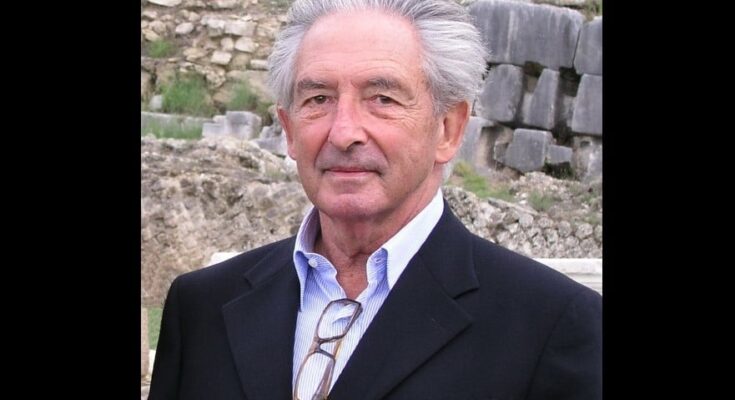Ex-prince Michael of Greece and Denmark, who was a celebrated historian and author, has passed away at the age of 85 at an Athens hospital it was announced on Sunday.
He was a first cousin of Prince Philip, the father of King Charles, and consort of Queen Elizabeth II of the United Kingdom.
Known in literary circles by his pseudonym Michel de Grece, he wrote several historical books and biographies of Greek and other European figures, in addition to working as a contributing writer to Architectural Digest.
The ex-prince was the last remaining grandson of George I with a lineage to the House of Bourbon through his mother’s side of the family. He lost his father at age one and renounced his right to the Greek throne to marry a commoner.
Why did Ex-prince Michael of Greece renounce the throne?
He married Marina Karella on 7 February 1965 in Athens, the daughter of industrialist Theodore Karella and Ellie Chalikiopoulos. Karella is a Greek artist and sculptor of international reputation whose work has often been exhibited in Athens, Paris and New York.
The marriage was held at the Royal Palace in Athens. This was a non-dynastic marriage, which obtained the legally required authorization of ex-king Constantine II only after Michael renounced all rights of succession to the Greek throne for himself and his descendants.
Michael was born in Rome to Prince Christopher of Greece and Denmark (youngest son of King George I of Greece) and his second wife Princess Françoise d’Orléans of France.
The ex-prince lost his father when he was just one year old and grew up in Morocco and Spain. Later he studied in France, but he always loved Greece and its history.
Prince Michael will be buried in the Greek capital on Thursday.
Greece abolishes the monarchy
The referendum that abolished the monarchy in Greece and the reign of Constantine II was held on December 8, 1974 after the collapse of the military junta.
The vote was overwhelmingly against the monarchy. About 69 percent of voters were in favor of a Republic with a turnout of roughly 75 percent. The result was met with enthusiasm on the streets of Athens and other major Greek cities.
The votes in the national referendum were about two to one in favor of “uncrowned democracy,” as it was called on the ballot. This meant that King Constantine, the sixth member of his dynasty to reign as King of the Hellenes, was stripped of his title.



